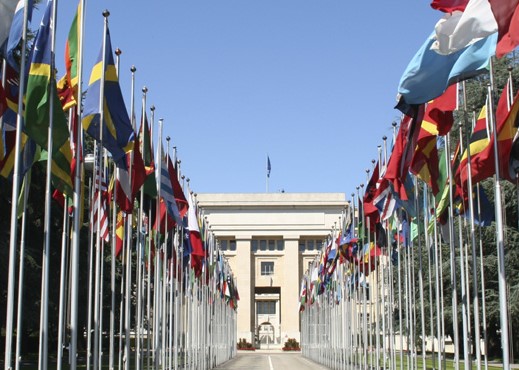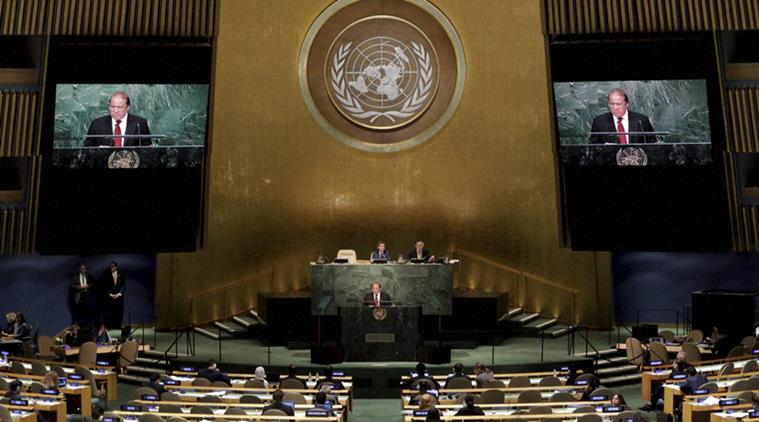A friend correctly points out that resistance to the necessity of global governance takes two contradictory forms—the idea that “it will never happen,” and “the fear of Global Big Brother.” In a global society, does the “internal affairs” of nations mean anything?
 As Helmut Burkhardt, who heads a Canadian organization called Science for Peace that has a Global Governance Group, said, “Municipalities did not disappear when state governments appeared. States did not disappear when the national government of the United States emerged. Similarly, Nations won’t disappear when a world government is created.”
As Helmut Burkhardt, who heads a Canadian organization called Science for Peace that has a Global Governance Group, said, “Municipalities did not disappear when state governments appeared. States did not disappear when the national government of the United States emerged. Similarly, Nations won’t disappear when a world government is created.”
The logic doesn’t follow and the analogy doesn’t fit however. Once the United States was formed, governance within America was no longer divided into internal vs. external. Municipalities and states were enfolded within a national framework. The same is true of every nation; each level of governance only operates harmoniously when it fits within a national framework. That has broken down in the United States.
Therefore the biggest hurdle to effective, limited global governance, besides the contradictory resistance to it, is the “internal affairs” idea. China cites it continually to blunt any criticism from outside its borders, and to incite nationalistic sentiments in its citizens. That risks war, and lies at the root of its causes.
Just this past week, the United Nations Human Rights Council, representing the views of the United States, Japan, Australia, Britain and eight other European countries, delivered a joint statement criticizing the sweeping arrests of activists and lawyers who do not have access to legal counsel nor are allowed family visits, in breach of China’s laws.
The statement by the UN Human Rights Council “also expressed alarm at the treatment of several Hong Kong residents who vanished and were evidently coerced into going to mainland China,” the New York Times reported.
In strong language, the Council said, “These extraterritorial actions are unacceptable, out of step with the expectations of the international community and a challenge to the rule based international order.”
Human Rights Watch praised the group’s statement for drawing attention to “what human rights defenders across China are trying to achieve and the utterly unacceptable price they are forced to pay for their work.”
Predictably, the Chinese ambassador to the Human Rights Council, Fu Cong, told Council members to “to cease meddling in China’s internal affairs.”
China also shot back by attacking American hypocrisy: “The United States conducts large-scale extraterritorial eavesdropping, uses drones to attack other countries’ innocent civilians, and its troops on foreign soil commit rape and murder of local people,” Mr. Fu said. He threw in abuses at the military prison at Guantánamo Bay, Cuba for good measure.
All this makes the urgent need for non-nation-state based global governance (which is a contradiction in terms anyway) very clear. But that requires a radical redefinition of sovereignty to mean the sovereignty of humanity, and an end to the inherently divisive concept of “internal affairs” of nations.
Can global citizens square the circle, upholding the self-determination of all peoples on one hand, and doing away with the defunct dualism of internal vs. external in the global society on the other?
The problem is essentially psychological and philosophical, not political. Nationalism is the modern version of man’s ancient tribalistic mentality, which is virulent in some people and places and not so virulent on others.
As global problems and pressures increase—for example the disruptions from man-made climate change, and mass migrations of people fleeing war and economic hardship—the tendency is to revert to ‘my people,’ and ‘my nation.’ This only exacerbates conflicts of course. It is the antithesis of a genuine worldview and the global governance essential to manage the challenges to humanity as a whole.
Therefore while it’s true, as Helmut Burkhardt says, “Human society is complex and requires a multilevel governance system,” the psychological and philosophical imperative is to be as simple as possible in approaching it.
There are only “internal affairs” if there are external enemies. There are only “internal affairs” when there is an ‘us vs. them’ mentality. There are only “internal affairs” if ‘my country’ takes precedence over humanity.
How can all levels of governance “form a nested hierarchy harmoniously organized according to the subsidiarity principle” when ‘my country’ remains first? Group identification has to be emotionally subordinated to the fact in the global society—that every person on the planet is a member, first and last, of humanity as a whole.
Without that psychological revolution, global governance is neither possible nor desirable.
Martin LeFevre

